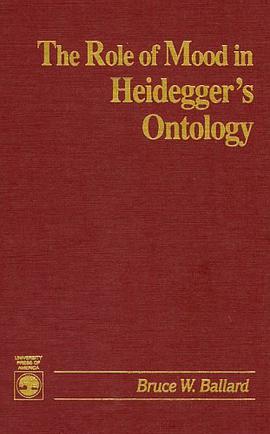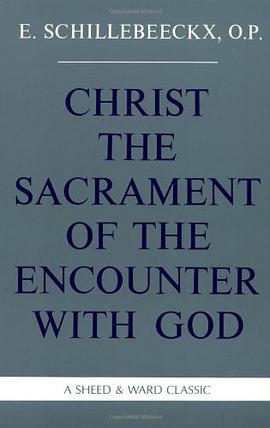

具体描述
This work offers a critical examination of how Heidegger uses the concept of mood in his philosophy of being. The author focuses on a specific kind of mood, namely anxiety, distinguishing this authentic mood from inauthentic ones, and then extends the concept outward to encompass Rudolf Otto's phenomenology of religious feeling by providing a ground for that work. There are four stages in the development of the work, each taking up a chapter. The first provides an introductory basis for understanding Heidegger's project in his Being and Time through a detailed analysis of his basic terms. In chapter two the author turns to the role of mood in disclosing self and world. In chapter three the author addresses himself to the marxist interpretation of alienation, and the criticism of certain marxists concerning Heidegger's concept of anxiety as not being socially based but merely psychologically based. In this context the author refers to the works of Adorno, Kosik, Lukacs, Marcuse, and Kolakowski. The focus is on such issues as authenticity, freedom and death. The fourth and final chapter extends Heidegger's remarks concerning mood into the realm of religious mood.
作者简介
目录信息
读后感
评分
评分
评分
评分
用户评价
这本书的学术引用和注释体系构建得极为扎实,这对于需要进行深度研究的读者来说,简直是福音。我随机抽取了几个段落进行交叉验证,发现每一个关键的引述都指向了权威且相关的原始文献,而且注释的格式统一且详尽,便于快速定位和查阅。更值得称赞的是,注释部分并非仅仅是简单的出处罗列,其中夹杂着一些作者对特定文本的精炼解读或对比分析,这使得注释本身也成为了辅助理解主体论证的有力工具,而不是一种负担。这种对文献背景的尊重和细致处理,极大地提升了本书作为研究参考资料的可信度和实用性。它透露出作者在准备和撰写过程中,对现有学术版图进行了全面的扫描和精心的辨析,为我们构建了一个坚固的知识支撑平台。
评分阅读的过程更像是一场智力上的“攀登”,作者的叙事节奏把握得非常精妙,没有丝毫拖沓,开篇便直击要害,用一种近乎诗意的语言铺陈出核心概念的轮廓。我发现自己常常需要放慢速度,不是因为晦涩难懂,而是因为某些句子蕴含的信息密度实在太高了。它不是那种让你囫囵吞枣、一口气读完的快餐读物,更像是一块需要细细品味的陈年佳酿。每当感觉思绪即将跟不上时,作者总会适时地插入一些历史性的参照或类比,帮助读者重新锚定在讨论的语境之中。特别是他对概念演变的梳理,如同一个技艺高超的钟表匠,将时间维度上的关联性梳理得井井有条,使得原本看似孤立的理论节点,突然间串联成了完整而有机的整体。这种行文的张力,极大地激发了我的主动思考,而非被动接受。
评分这本书的装帧设计真是让人眼前一亮,封面采用了深沉的哑光纸,触感非常细腻,黑底金字的排版显得既古典又充满现代感。我尤其喜欢封面上那枚小小的、仿佛出自中世纪手稿的符号,它立刻将读者的思绪带入了一种沉静而深刻的哲学氛围中。内页的纸张选择也十分考究,米白色的纸张有效减轻了长时间阅读带来的视觉疲劳,字体的选择清晰易读,行间距处理得恰到好处,使得整本书在视觉上呈现出一种克制而优雅的美感。拿到书的那一刻,我就感觉自己不是在触摸一本普通的学术著作,而是一件精心打磨的艺术品。这种对物理形态的重视,无疑为接下来的精神探索奠定了高雅的基调,让人迫不及待想要翻开它,去探寻文字背后所蕴含的深邃意境。初次接触就能感受到出版方在细节上所倾注的心血,这对于严肃的哲学读者来说,是一种非常重要的仪式感,它预示着作者和编辑团队对内容呈现的极高要求。
评分这本书的结构布局设计得颇具匠心,其章节之间的逻辑递进关系,远比我预期的更为紧密和巧妙。它不是那种简单的“A点讲完,再讲B点”的线性陈述,而更像是一个螺旋上升的论证过程。开篇奠定的基础性讨论,为后续引入的复杂议题提供了坚实的支撑,每深入一层,都能感受到之前所学概念如何被重新激活和深化。我尤其欣赏其中几处章节转折的处理,它们没有生硬的提示语,而是通过论证的自然收束与新议题的有机开启来实现平滑过渡,这使得整个阅读体验一气呵成,极大地增强了论述的说服力。作者显然对读者的认知负荷有着细致的体察,始终在保持学术严谨性和可理解性之间找到了一个微妙的平衡点,让读者既能感受到挑战,又不至于迷失在术语的丛林里。
评分从图书馆借阅的这本书,其批注和标记的使用频率,清晰地反映了它对读者思维的强大激发作用。我注意到自己频繁地在页边空白处写下疑问、反驳或者延伸的思考,这对于一本纯粹的学术作品来说,是极高的赞誉。它成功地打破了作者与读者之间的传统壁垒,使阅读变成了一种积极的对话。书中某些关键论断的表述方式,极具启发性,它们并非给出了标准答案,而是打开了一扇扇通往不同思考可能性的门扉。例如,在讨论某个核心概念的界限时,作者所提出的那些反向追问,迫使我不得不审视自己过去对此议题的既有预设。这种“被挑战”的感觉,正是衡量一本哲学著作价值的重要标准之一,它展现了文本中蕴含的强大生命力。
评分 评分 评分 评分 评分相关图书
本站所有内容均为互联网搜索引擎提供的公开搜索信息,本站不存储任何数据与内容,任何内容与数据均与本站无关,如有需要请联系相关搜索引擎包括但不限于百度,google,bing,sogou 等
© 2026 book.wenda123.org All Rights Reserved. 图书目录大全 版权所有




















